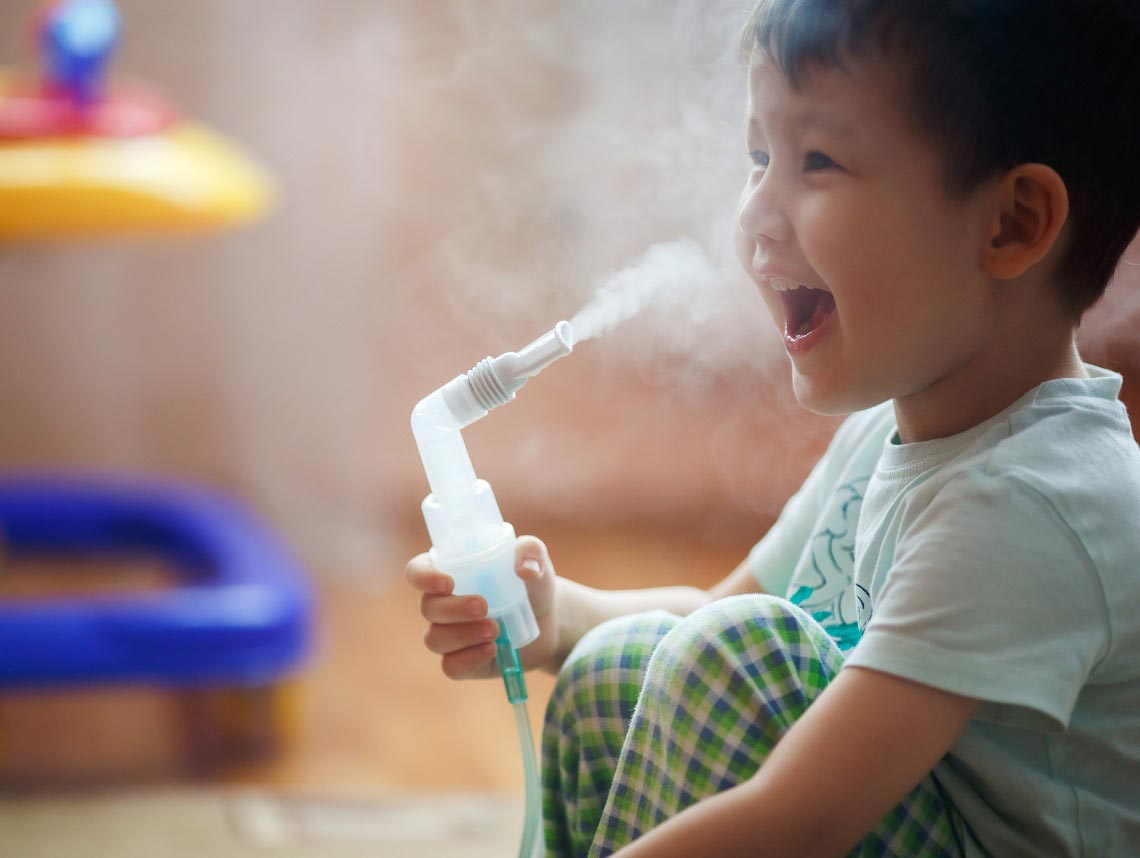If your child has been having breathing difficulties, you’re likely wondering what’s causing them — and how you can prevent it from happening again. Things can get even more confusing if it all started as a common cold, but has now snowballed into something more serious. Such can be the case with bronchiolitis. But, what exactly does the condition entail? What are the symptoms? What causes it? And what are the best forms of treatment you can provide for your little one?
What is bronchiolitis?
Bronchiolitis is a lung infection that causes inflammation and congestion in the bronchioles — small airways inside the lungs that branch off like tree limbs. Their main function is to deliver air to microscopic air sacs called alveoli, the part of the lungs where oxygen and carbon dioxide are exchanged. Although the condition can happen at any age, it is most common in young children — especially those who are two years of age or younger. This is due to their lungs and immune system not being fully developed yet. When the bronchioles are inflamed, they fill with mucus. This, in turn, causes your child to feel congested and makes it hard to breathe.
Causes of Bronchiolitis
Bronchiolitis occurs when a virus infects the bronchioles. In most instances, the virus that causes it is the respiratory syncytial virus (RSV). Outbreaks of RSV are most common during the winter months — and could spread like wildfire in a daycare center or other crowded environments.
Bronchiolitis can also be the result of the influenza virus or the common cold. It spreads the same way as most contagious illnesses — such as by touching contaminated objects, such as toys, tabletops, doorknobs, and/or eating utensils — then touching their eyes, nose, or mouth.
In addition, the condition is most likely to occur in premature babies, those with an underlying medical condition, and infants who are exposed to secondhand smoke. Not only are such babies at a high risk of developing bronchiolitis, they are also likely to develop a more severe form of infection.
Symptoms of Bronchiolitis
The symptoms of bronchiolitis may start out similar to those of the common cold. However, instead of getting better as days go by, they worsen. These include:
- Stuffy nose
- Congestion
- Coughing
- Runny nose
- Fever
While the above symptoms are common, there are certain instances in which you should seek medical attention immediately. Seek emergency care if your child experiences:
- Wheezing
- Labored breathing
- Skin turning blue — especially their lips and/or fingernails
- Sluggishness
- Pauses in their breathing pattern
- Dehydration
Treatment for Bronchiolitis
Most cases of bronchiolitis go away on their own. However, your child’s pediatrician may recommend at-home remedies — such as using a vaporizer or humidifier in your child’s bedroom while they sleep. This helps loosen mucus, which will reduce coughing and make breathing easier.
Your child’s doctor may also recommend nose drops, clearing your child’s nose with a suction bulb, over-the-counter medications, and keeping your child hydrated. If, however, your child is a baby or is dehydrated, they may need to be hospitalized until they get enough fluids and their breathing is stabilized.
Preventing Bronchiolitis
Since bronchiolitis spreads from child to child, the best ways to prevent it are the same as preventing other illnesses. These include washing their hands often, covering coughs and sneezes, cleaning shared surfaces, and limiting contact with sick people. If your child is not feeling well, keep them at home until they are healthy again.
Contact Care Options for Kids for Home Health Care
It can be hard to balance your time between work, home, and caring for a loved one. That’s why our team of professionals at Care Options for Kids is here to help.
Our home health care services offer support in the comfort of your home. We refer loving and competent nurses to provide customized care for families — from a few hours a day to around-the-clock supervision. Contact us directly to speak with a home health care professional or request a free in-home assessment. Together we can determine the best plan of action to keep your loved ones happy and healthy.
If you or a loved one are considering pediatric home health care services, contact the caring staff at Care Options for Kids. Call today at (888) 592-5855.






